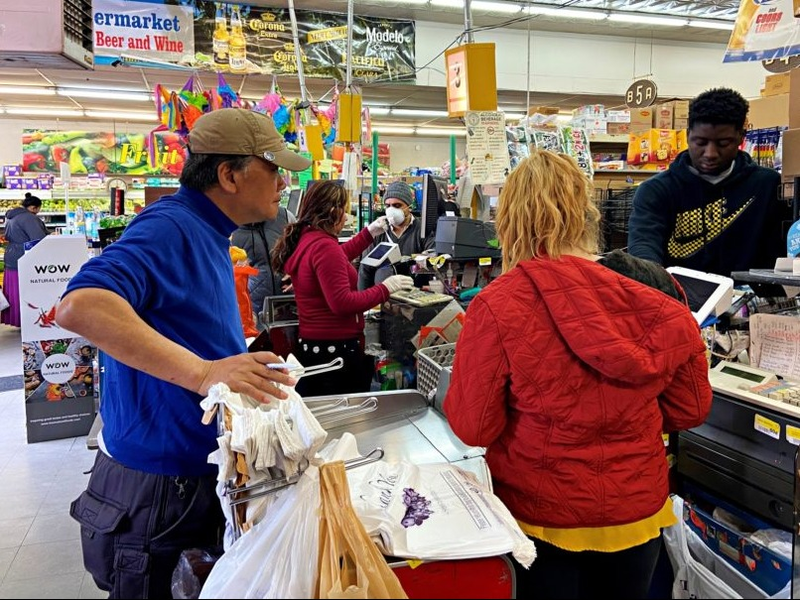Locally Owned Grocery Stores Are Thriving During Coronavirus

Many small businesses across the D.C. region are struggling to stay afloat, however for small food markets and grocery store chains, business is booming.
For Scott Nash, the owner of the Mom’s Organic Market grocery stores in Washington D.C, business has doubled. Nash says the increase is because of restaurants in D.C, Maryland, and other states closing down to slow the spread of coronavirus while grocery stores struggle with empty shelves and massive lines.
Trying to Keep Shelves Stocked
Mom’s Organic Market has been able to manage the higher demand and restocking. Nash has been able to call up his suppliers and arrange extra deliveries to keep his shelves relatively full.
However Each Peach Market has been struggling with this. Due to them being partnered with individual farmers and not larger suppliers, they can’t order more products as quickly. Eleanor Gease, the store’s general manager said “We’re calling up, like, Tim, the guy who brings us our eggs and saying to him, ‘can you bring us twice as many eggs as you normally do?”
Difficulty Staffing
For grocery stores the shortage is labor, not product.
Eleanor Gease, Each Peach’s general manager said “Staff are exhibiting signs of stress, they’re interacting with hundreds of people a day.”
Nash, at Mom’s has increased overtime pay so employees are willing to work more hours. On top of that he has also been trying to hire temporary workers. He said “Every store could use 15 more employees today.” He’s hoping to hire restaurant workers that lost their jobs due to the shut down.
At Best World, Pak has been so busy that he had to turn away from his managerial duties in order to help stock shelves. He said “It’s busy, but someday it’s going to slow down. Busy means nothing to us.”
Is Smaller Safer?
The nation’s large corporate grocery store chains say that they are stocking up to meet demand and are increasing their sanitization practices to keep people safe. Despite this, there is still concern that being in the vicinity of hundreds of other shoppers is a risk. This has led some to shop at their community stores where the crowds are smaller.
Jeanlouise Conaway, the owner of Each Peach said “I heard from a customer, ‘I don’t want to go to Safeway,” She believes their local customers trust her employees to prioritize health and safety over profits.
Conaway has had the flexibility to put in place new practices like curbside grocery pickup and limiting the number of shoppers inside to eight at a time, due to the small size of her business.
Nash said he’s doing everything he can to keep his Mom’s stores clean, while acknowledging that there’s only so much he can control. “All you can do is, don’t touch your face and wash your hands and stay a few feet from everybody. You can sanitize all you want.” He goes on to say
“We really ought to be grateful as hell that we’re in this industry” he continues after a pause. “Our problems are good problems. Our jobs aren’t threatened, at least not yet.”
With most businesses struggling to meet their bottom line, grocery store businesses are skyrocketing while also meeting their own new set of challenges.
Author Bio: Blair Thomas has been a music producer, bouncer, screenwriter, and for over a decade has been the proud Co-Founder of eMerchantBroker, the highest-rated High volume merchant account processor in the country. He has climbed in the Himalayas, survived a hurricane, and lived on a gold mine in the Yukon. He currently calls Thailand his home with a lifetime collection of his favorite books.







